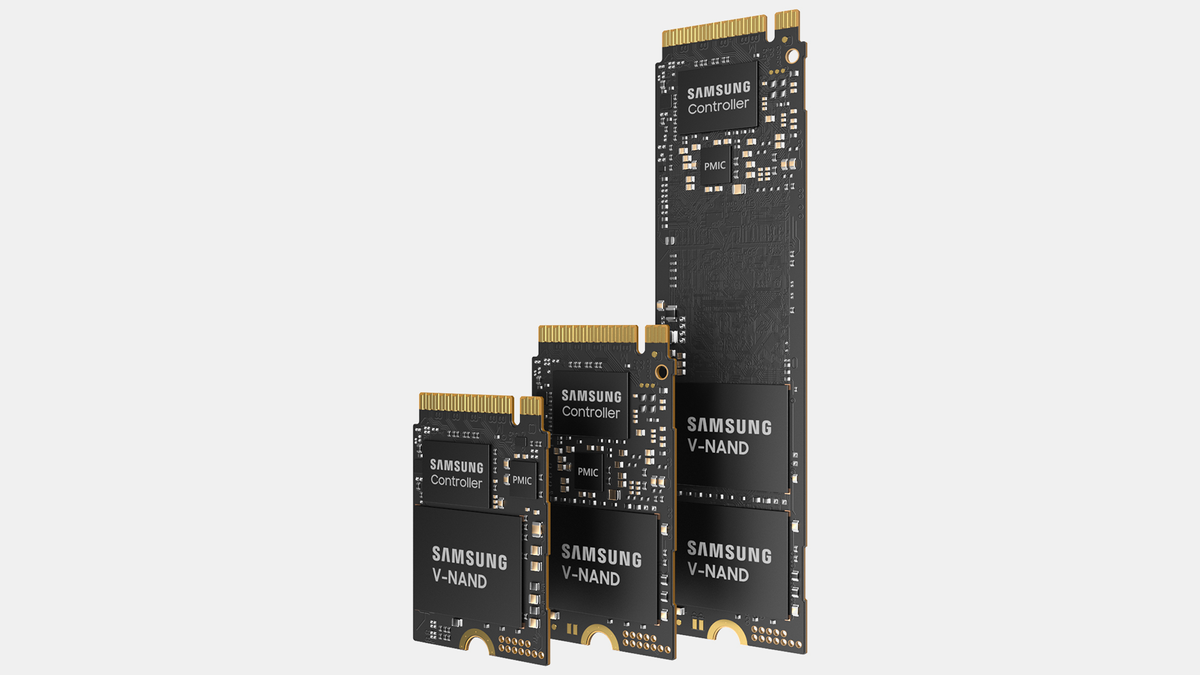silversurfer
Super Moderator
Thread author
Verified
Top Poster
Staff Member
Malware Hunter
Forum Veteran
- Aug 17, 2014
- 12,746
- 123,926
- 8,399
Samsung on Thursday introduced its new PM9C1a solid-state drive that uses a controller built using a 5 nanometer-class process technology. The innovative production node allowed Samsung to substantially cut power consumption of the SSD controller and therefore reduce power consumption of the whole drive. The PM9C1a family is aimed primarily at mainstream and performance-mainstream notebooks.
From performance point of view, Samsung's PM9C1a offer an up to 6 GB/s sequential read speed as well as an up to 5.60 GB/s sequential write speed, which looks quite good for a mainstream drive with a PCIe 4.0 x4 interface. Meanwhile, they provide up to 900 thousand and 1 million of random read and write IOPS (respectively), which is in line with some of the best SSDs available today. The storage devices will be available in 256GB, 512GB and 1TB configurations as well as in M.2-2230, M.2-2242, and M.2-2280 form-factors to satisfy needs of different laptop designs.
"Our new PM9C1a SSD will deliver a robust combination of superior performance, greater power efficiency and increased security, which are the qualities that matter most to PC users," said Yong Ho Song, executive vice president of memory solution product & development at Samsung Electronics in a statement. "We are committed to creating storage that satisfies the diverse and changing market requirements, as we continue to advance innovation in the PC SSD space."

Samsung Launches First SSDs Based on 5nm Controller
Samsung's PM9C1a SSD uses 5nm controller, 7th Generation V-NAND.